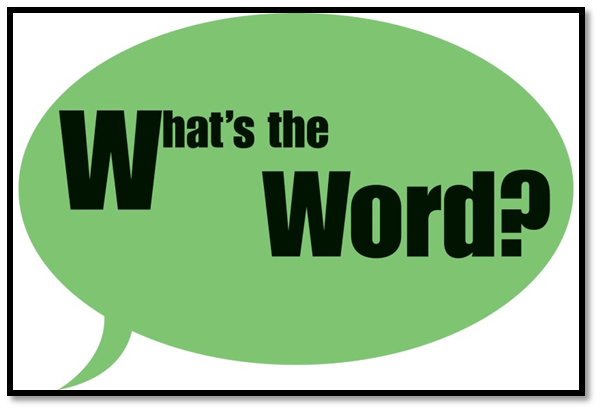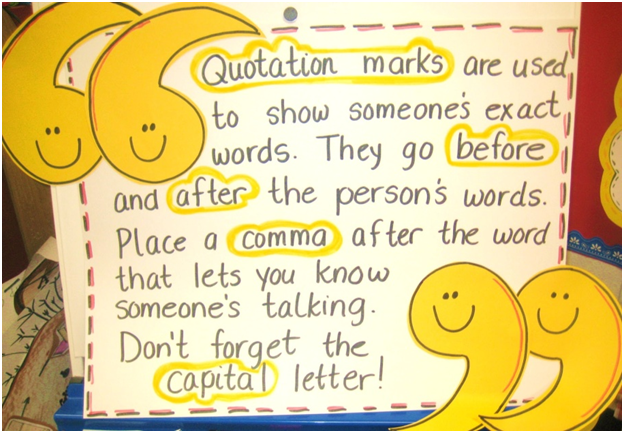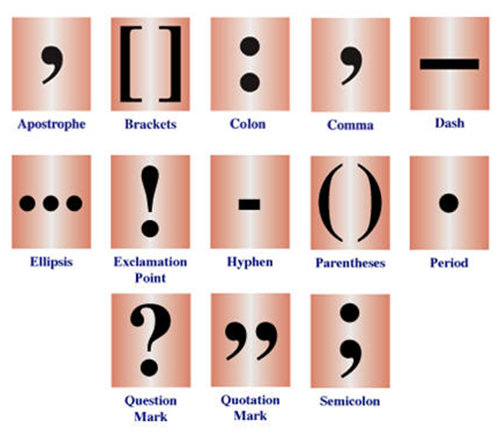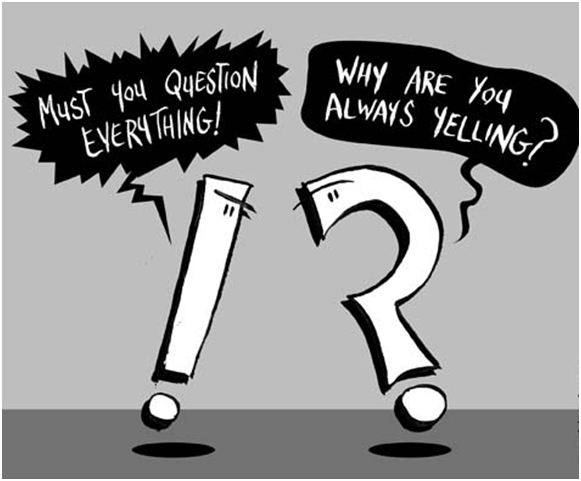10 common mistakes in English
An undeniable fact is that the English language could get confusing at some point or the other. There are numerous words that are spelled similarly yet have different meanings, some words are pronounced the same way, however, mean something completely different. These results in many of us often make a mistake, not only once but time and again. Therefore, it is crucial for us to get our head around these explanations, as getting familiarized to these words can prevent you from making errors once you recognize them along with their meanings.

Let's take a look at 10 of the most common mistakes made by individuals globally:
Error 1:
Accept v/s Except
Accept (verb) - To agree to take something.
Example- It is important for all of us to accept good advice.
Except (preposition/ conjunction) - To not include.
Example- Everyone was invited except Joanne.
Error 2:
Adverse v/s Averse
Adverse (adjective) – To be acting in opposition.
Example- She had an adverse reaction to the medication.
Averse (adjective) – To be opposed to.
Example- John is averse to taking critical risks.
Error 3:
Bought v/s Brought
Bought (past tense to the verb 'buy') – To buy something.
Example- He bought himself the motorcycle of his dreams.
Brought (past tense of the verb 'bring') – To bring something.
Example- Daniel brought his new girlfriend to the party.
Error 4:
Can v/s May
Can (verb) – To be able.
Example- Jacob can play the guitar well.
May (verb) – To be permitted.
Example- May we go to a movie today, mom?
Error 5:
Compliment v/s Complement
Compliment (noun) – A remark that expresses admiration/ respect.
Example- Ronda got the best compliment for her flawless style.
Complement (verb) – To make something more attractive when combined.
Example- I love the way Richard and Sue complement each other's personality.

Error 6:
Dairy v/s Diary
Dairy (adjective) – Anything made out of milk.
Example- Dairy products are my favorite!
Diary (noun) - A written record of one's personal experiences.
Example- Megan has been maintaining her secret diary for ages now.
Error 7:
Each v/s Every
Each (determiners, which means words that are used with singular nouns to indicate quantity) - Refers to an individual as one.
Example- Each and every one dressed their best for my wedding.
Every (determiners, which means words that are used with singular nouns to indicate quantity) - Refers to a group lumped together as one.
Example- Always remember that every drop counts.
Error 8:
Beside v/s Besides
Beside (preposition) – At the side of/ next to.
Example- My house is located right beside her house .
Besides (adverb/ preposition) – In addition to/ also.
Example- Besides two dresses, Jin also carried a pair of denims.
Error 9:
Affect v/s Effect
Affect (verb) – To influence/ change something or someone.
Example- Don't bring her here, the chaos will affect her illness.
Effect (verb) – To have an impact on something or someone.
Example- The effect of smoke is extremely hazardous to health.
Error 10:
Loose v/s Lose
Loose (adjective) – Something that is not fixed properly.
Example- The wire of my phone's charger is loose.
Lose (verb) – To no longer possess something.
Example- With today's recession, anyone could lose their job.

English is a language full of twists and turns, however, you could get a holistic understanding of the same by enrolling in an English speaking course online. Doing so will not only improve your English communication skills but also bring about an improvement in your English grammar understanding.
About EAgeTutor:
eAgeTutor.com is a premier online English learning institute. eAge's world class faculty and ace communication experts, from around the globe, help you to improve in an all-round manner. Assignments and tasks based on a well-researched content developed by subject matter and industry experts can certainly fetch the most desired results for improving spoken English skills. In this age of effective and advance communication technology, online spoken English programs are the most effective and convenient way to learn English.
For further information on our online English speaking courses or to experience the wonders of the virtual classroom, fix a demonstration session with our tutor.
- By Monika Agarwal
Related Topics:
1. How to improve your grammar and comprehension for Entrance exams?
2. How to improve your vocabulary for entrance exams?
3. How to grab an internship opportunity?
4. How to effectively make a presentation?
5. Why Online Tutoring is Easy and Beneficial?
How to converse at the front desk?
As a front desk executive, you are expected to possess a polish in your English communication skills as well as are required to communicate with warmth and ooze genuineness. Holding a position as such requires you to speak with certain sophistication and poise in your body language as well as the way you put yourself across to the customer/client. As a front desk executive, you are the first point of contact when a client enters your hotel. This responsibility needs you to put your best foot forward and speak English fluently.

Sample Conversation at a front desk
Here is an example that you could find useful in helping you converse as a professional, well- trained, proficient front desk executive.
Rita (Front Desk Executive): Good Afternoon, Welcome to the Grand Hyatt luxury Hotel. How may I help you?
Guest: I had a reservation booked for today.
Rita: Sure Sir. Could you please provide me with your first name?
Guest: My name is Kenneth.
Rita: Can you please spell that out for me?
Guest: Sure. K-E-N-N-E-T-H.
Rita: Yes, Mr. Kenneth, we have reserved a double room for you with the scenic view of the ocean. Just as you requested.
Guest: Of course.
Rita: In addition, the room is booked for three days and two nights. Is that correct?
Guest: Yes, it is.
Rita: Excellent. We already have your credit card information on file. Please sign the receipt along the bottom.
The guest signs the billing amount.
Guest: Here you go!
Rita: Sir, along with your presidential suite you get a full continental breakfast every morning, free airport shuttle service, and can avail all the liquor in the mini- bar available in your room.

Guest: Sounds good. So, what room am I in?
Rita: Room no. 465. Here is your key. Our bellhop will escort you to your room as well as make sure that your entire precious luggage reaches your room at the earliest.
Guest: Great. Thanks!
Rita: Should you have any queries or requests, please dial zero (0) from the telephone made available in your room. In addition, we have a wifi connection that you can get access as you enter your room.
Guest: Amazing. Thank you for all your help.
Rita: My pleasure, Sir. Have a wonderful stay at the Grand Hyatt luxury hotel.
There you have it. A conversation that comes across as complicated made simple for you. If time permits, make sure to learn English fluently by enrolling in one of the available spoken English courses online.

It is crucial for you to treat your guests with a modest undertone in your voice and a constant warm smile on your face. Keep your English simple and fulfill all the queries put forth by your guest. Understand the fact that you are the face of the 5 star luxury hotel you work at, be crisp, clear in your answers, and ensure to know all about the services your hotel offers. If there is a waiting period for the generation of the bill or any confusion as such… indulge in small talk with the guest, keeping him/ her distracted from the wait period that has been caused.
About eAgeTutor:
eAgeTutor.com is a premier online English learning institute. eAge's world class faculty and ace communication experts, from around the globe, help you to improve in an all-round manner. Assignments and tasks based on a well-researched content developed by subject matter and industry experts can certainly fetch the most desired results for improving spoken English skills. In this age of effective and advance communication technology, online spoken English programs are the most effective and convenient way to learn English.
For further information on our online English speaking courses or to experience the wonders of the virtual classroom, fix a demonstration session with our tutor.
- By Monika Agarwal
Related Topics:
- Dos and Don'ts of Public Speaking.
- How to Greet? Learn the Basics.
- How to Overcome the Anxiety of Making Mistakes when Speaking English?
- How to Improve Communication Skills?
- Golden Rules for Improving Spoken English.
How to use Punctuation Correctly? Part - II
In our first part we learned about the use of five punctuations, namely period, question mark, exclamation mark, Ellipsis, Semicolon (;) and colon (:). Let us now begin our free English learning session with other punctuations.
Hyphen vs. Dash
Don't we all get confused when it comes to the use of the hyphen and dash? A hyphen is used when you add a prefix to a word. The hyphen makes it easier to read the word. For instance, reexamine needs to be written as re-examine. As you can notice, the hyphen makes the word easy to read. It is important to refer a dictionary whenever you have doubts whether a hyphen needs to be added or not.
There are words like to restate, undo, etc. that do not require a hyphen. A hyphen means the words rely on each other. The hyphen is also used when you make compound words, like, up-to-date.
The dash is used to introduce some information to the subject not necessarily directly related to the topic under discussion. For instance, Ram - a mechanical engineer from D.E institute – presented an innovative idea in his latest presentation at the annual meeting. Now, this is clearly additional information without which the sentence would be complete, but the information definitely provides more idea on his educational background. When you are using a dash, there is a way you can ascertain whether the usage is right. Just read the line, omitting the dash part, if the sentence is still making sense then it is correct, but if it is disjointed then you may need to reframe the sentence.
Quotation marks (" ")
Whenever you are stating a direct quotation, as said by a person or taken from a piece of literature, you should use the double quotation mark.
For instance: According to a research, "60% of Indian population gets confused between the usage of double quotation and single quotation marks."
Single quotation
Also called as the apostrophe mark ('), it is used within a word to indicate possession and short form.
Ex: It's my pen over there.
There is a great lot of confusion between using an apostrophe and singular/plural noun.
It is my daughter's pen and it is her pen. We cannot say that it is her's pen.
There are a number of English learning exercises online where you can practice the use of apostrophe to improve your English language skills.
English grammar is an interesting topic to learn, but requires a lot of patience and practice. Nobody can learn it overnight. So, go step-by-step. Correct usage of punctuation is a fundamental to learning the English language. We shall continue with our free English learning lessons, in our next blog. We shall also take a lesson on the usage of commas (,). Stay tuned to our online class for English speaking.
How to Use Punctuation Correctly? Part - I
One of the most common and basic mistake that most of us commit while writing is the wrong use of punctuation marks. In today's modern age, when we are more fluent with the SMS language and the slang terms, we have forgotten the fundamentals of English like Punctuation. How many of us can proudly say we know A-Z about punctuation. Let's consider this article as your free English learning guide to punctuation.
Definition of punctuation
Wikipedia definition
"Punctuation marks are symbols that indicate the structure and organization of written language, as well as intonation and pauses to be observed when reading aloud."
The Oxford dictionary defines, "the marks, such as a full stop, comma, and brackets, used in writing to separate sentences and their elements and to clarify meaning."
In simple words, a set of symbols that are used in writing to guide a reader know the structure of a sentence. Punctuation guides us to change the rhythm, highlight a word in our speech and show the right expression. The common punctuation marks in English include the comma, apostrophe, period, quotation mark, exclamation mark, question mark, bracket, hyphen, dash, semicolon, ellipsis, and colon. Each punctuation mark has a specific purpose and use in the English language. Some may have varied meanings; based on the context they are used.
Punctuation rules 
End of the sentence punctuation
Every sentence that you write has to end somewhere. This ending punctuation mark can be a full stop or period, exclamation mark, question mark or an ellipsis. These punctuation marks terminate a sentence. The default terminal punctuation mark is a period or a full stop.
Ex: He lives in Chicago
The period is used here to finish the sentence without disclosing any other meaning.
Question mark: When you end a sentence in a question mark, you suggest an inquiry or an interrogatory remark.
Ex: What is your name?
The question mark is used to inquire a person's name.
Exclamation mark: It is used to suggest excitement or emphasis in a sentence.
Ex: I can't believe I am going to UK!
Ellipsis: It is a punctuation that is used when some part of a sentence is being omitted; usually used in quotes.
Ex: "[...] the President was excited as he laid out the growth policies in the agricultural sector."
Semicolon (;) vs. colon (:)
We all have studied the use of Semicolon while learning English grammar in our school. However, do you understand the difference between a colon and a semicolon? A semicolon is used when the writer wants to link two related, but independent clauses. There is always an argument, why not a period but a semicolon. Of course, if you think your sentence is too wordy, you can use a period, but avoid using it if you think it will create a strong break between the sentences.
Example: Several fast food restaurants can be found within the cities: London, England; Paris, France; Dublin, Ireland; and Madrid, Spain.
Now, let's learn the English lesson on the use of the colon. This punctuation mark is used to introduce a list. It can be used with ratios, titles and subtitles of books, hours and minutes.
Example: The concert begins at 21:45.
The following are our services:
We shall continue our free English learning session in our next blog on how to use English punctuation correctly. Till then, practice and observe the above punctuation marks to improve your English skills.




